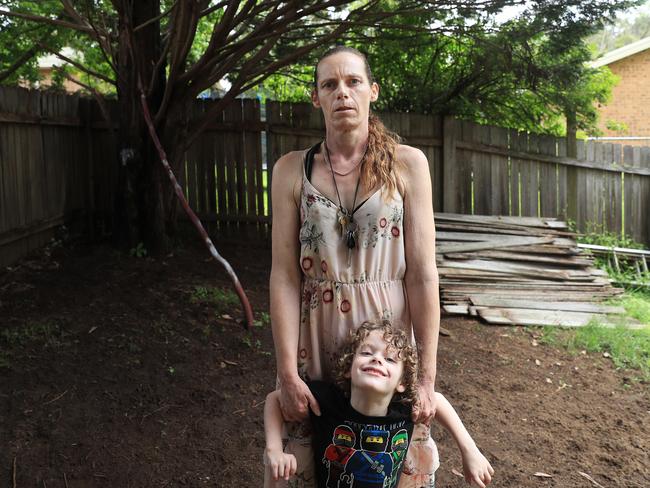Explainer: These are the long-term effects of Covid-19 and what can be done about them
With Covid-19 cases surging, some people continue to experience symptoms and side effects indefinitely. Here’s what you need to know.
Coronavirus
Don't miss out on the headlines from Coronavirus. Followed categories will be added to My News.
Covid-19 seems to affect everyone differently, from asymptomatic infections to hospitalisations in intensive care units and even death.
But over the duration of the pandemic, which will enter its third year in March, the phenomenon of post-acute Covid-19 has arisen: a syndrome characterised by the persistence of clinical symptoms beyond four weeks from the onset of infection.
Also known as “long Covid,” this syndrome has become increasingly apparent in adults and children who were previously healthy.
Doctors know the SARS-CoV-2 virus can damage the lungs, heart and brain, which increases the risk of long-term health problems, and there are other lingering side effects, too.
Here’s what we know about long Covid – its symptoms, how long it can last, and what treatments are available.

What is long Covid?
Most people who contract coronavirus recover within a few weeks, but some people continue to experience symptoms long after their initial recovery from the infection.
These people sometimes describe themselves as “long haulers” and the conditions “long Covid-19,” which persist for more than four weeks after diagnosis.
What are the symptoms of long Covid?
Common signs and symptoms that linger over time include:
Fatigue
Muscle pain
Joint pain
“Covid toes” or other blisters and rashes
Organ damage such as heart, lungs, liver
Shortness of breath, difficulty breathing
Heart palpitations
Chest pain
Cough
Headache
Memory loss, “brain fog,” poor concentration
Sleep problems, insomnia
Loss of smell or taste
Depression or anxiety
Fever
Dizziness when standing
Symptoms aggravated after physical or mental activities
The biggest take away from this study has GOT to be the fact that the LC patients with 'hidden' lung damage were never hospitalized during their 'mild' acute SARS-COV-2 infections. #LongCovidhttps://t.co/Fug3rCgF2K
— Long Covid Patient Action Group UK (@LC_UK_Action) January 29, 2022
Who is at risk of getting long Covid?
Older people and people with previous medical conditions and certain “biomarkers” are the most likely to experience lingering Covid-19 symptoms.
However, young, otherwise healthy people can also feel unwell for weeks to months after infection.
With increasing numbers of children contracting Covid, more cases of “long Covid” in children are appearing.
Hi my names Tillie I am 11 years old and I am suffering from long covid. Follow my journey on raising awareness for other people/children like me. #LongCovid#LongCovidKidspic.twitter.com/M7NURc2W1k
— Tilliesjourney (@tilliesjourney) January 24, 2022
In September 2021, the Israeli Health Ministry released the results of a survey showing that 11.2 per cent of children reported symptoms of long Covid.
“No one is certain exactly how many people who’ve had COVID-19 end up being long haulers,” wrote Johns Hopkins University School of Medicine Professor of paediatrics Dr. Peter Rowe on the American Academy of paediatrics’ Healthy Children website.
“One study showed that as many as 52% of teens and young adults between ages 16 and 30 may experience lingering symptoms 6 months after having Covid,” he wrote.
My 9yr old is improving and today managed her most unaided steps, she has been using a walker after covid in sept21 left her unable to use her left side and in constant pain. She is raising money and awareness while trying to navigate long covid. pic.twitter.com/JDUZ0I4RlH
— Louise Saville (@lou_sav) January 29, 2022
The factors that make some people more likely to develop long Covid were identified in a study published the scientific journal, Cell.
The study links auto-immune cells with a predisposition to developing the condition in some people.
The research also found that the level of viral load initially in the infection could make a person more likely to go on to experience long Covid.
Other factors identified were the reactivation of the Epstein-Barr virus, which most people have contracted at some point in their lives and which lies dormant in the body; and underlying Type 2 diabetes.

How severe is long Covid?
A recent study found that post-acute Covid-19 syndrome negatively impacts physical function, cognitive function, health-related quality of life, and participation. Things to watch out for include:
Organ damage:
Covid-19 primarily affects the lungs, but it can also damage other organs, including the heart, kidneys and the brain. Organ damage may lead to health complications that linger after Covid-19 illness.
In some people, lasting health effects may include long-term breathing problems, heart complications, chronic kidney impairment, stroke.
Covid can also trigger other illness such as Guillain-Barré syndrome (GBS), a rare neurological disorder in which the body’s immune system mistakenly attacks part of its peripheral nervous systems condition that causes temporary paralysis; and multisystem inflammatory syndrome in adults and children (MIS-C) has been associated with Covid-19, causing organs and tissues to become severely inflamed.
Blood clots and blood vessel problems:
Covid-19 can make blood cells clump up and form clots. While large clots can cause heart attacks and strokes, small clots can also block tiny blood vessels in the heart muscle.
Other parts of the body affected by blood clots include the lungs, legs, liver and kidneys. The virus can also weaken blood vessels and cause them to leak, which can negatively affect liver and kidney function.
This is #LongCovid. Get a good look at it... covid isn't just a cold. For some people it destroys lives. Forget having a social life, working, driving. No more energy for showers, walks to the mailbox, cooking meals. pic.twitter.com/8lXCb9UAzE
— mynamesleurah (@mynamesleurah) January 21, 2022
Fatigue and depression:
People who have severe cases of Covid-19 and need to be intubated (mechanical breathing through ventilator) are more likely to develop post-traumatic stress, anxiety, and depression, according to the Mayo Clinic.
How is long Covid treated?
Doctors treat individual symptoms as they arise – for example, headache, fever, inflammation, rashes, mobility, etc.
How long does long Covid last?
This is unknown and studies are underway.
What are scientists doing about long Covid?
Scientists are examining the long-term effects seen in related viruses, such as the virus that causes severe acute respiratory syndrome (SARS).
For example, many people who recovered from SARS went on to develop chronic fatigue syndrome, and it is possible this might be the case with Covid long haulers, too.
Many long-term Covid-19 effects still unknown but research is ongoing.
More Coverage
Originally published as Explainer: These are the long-term effects of Covid-19 and what can be done about them





